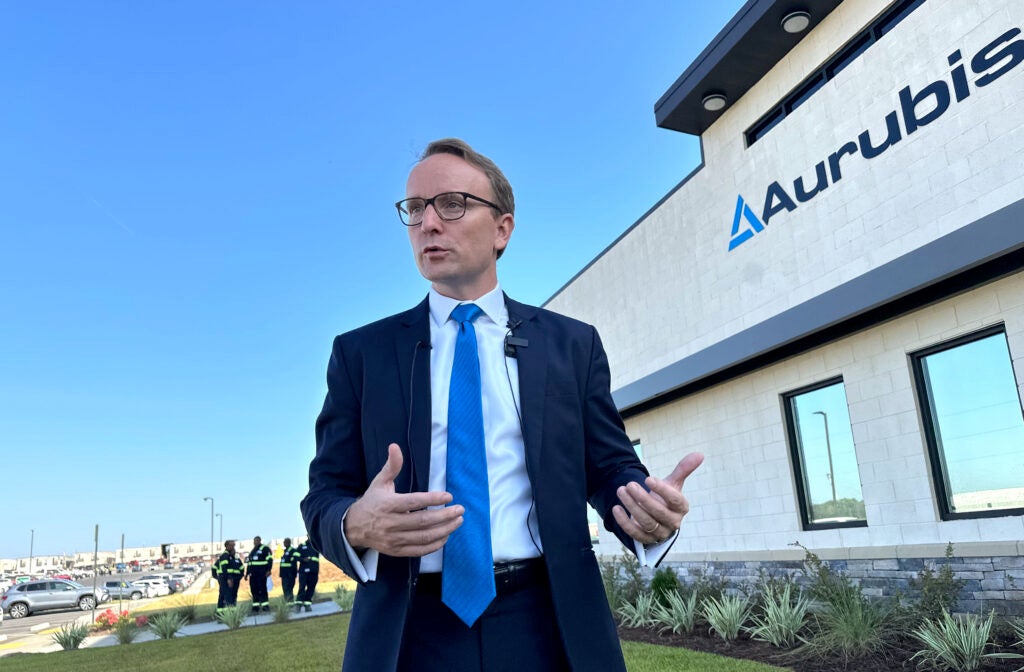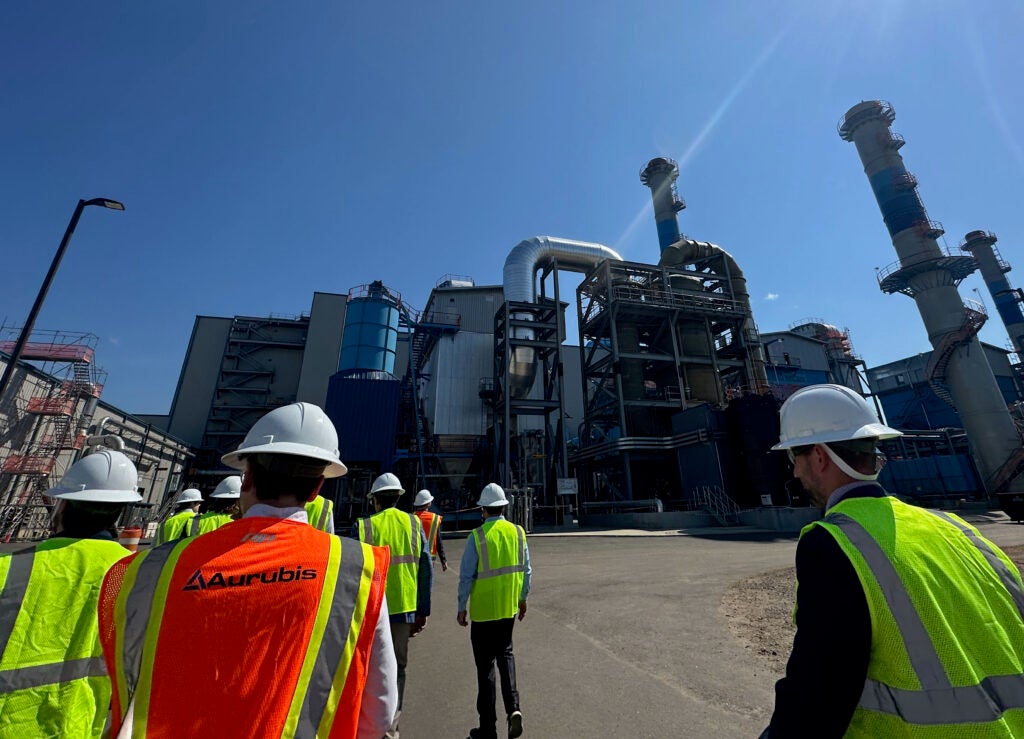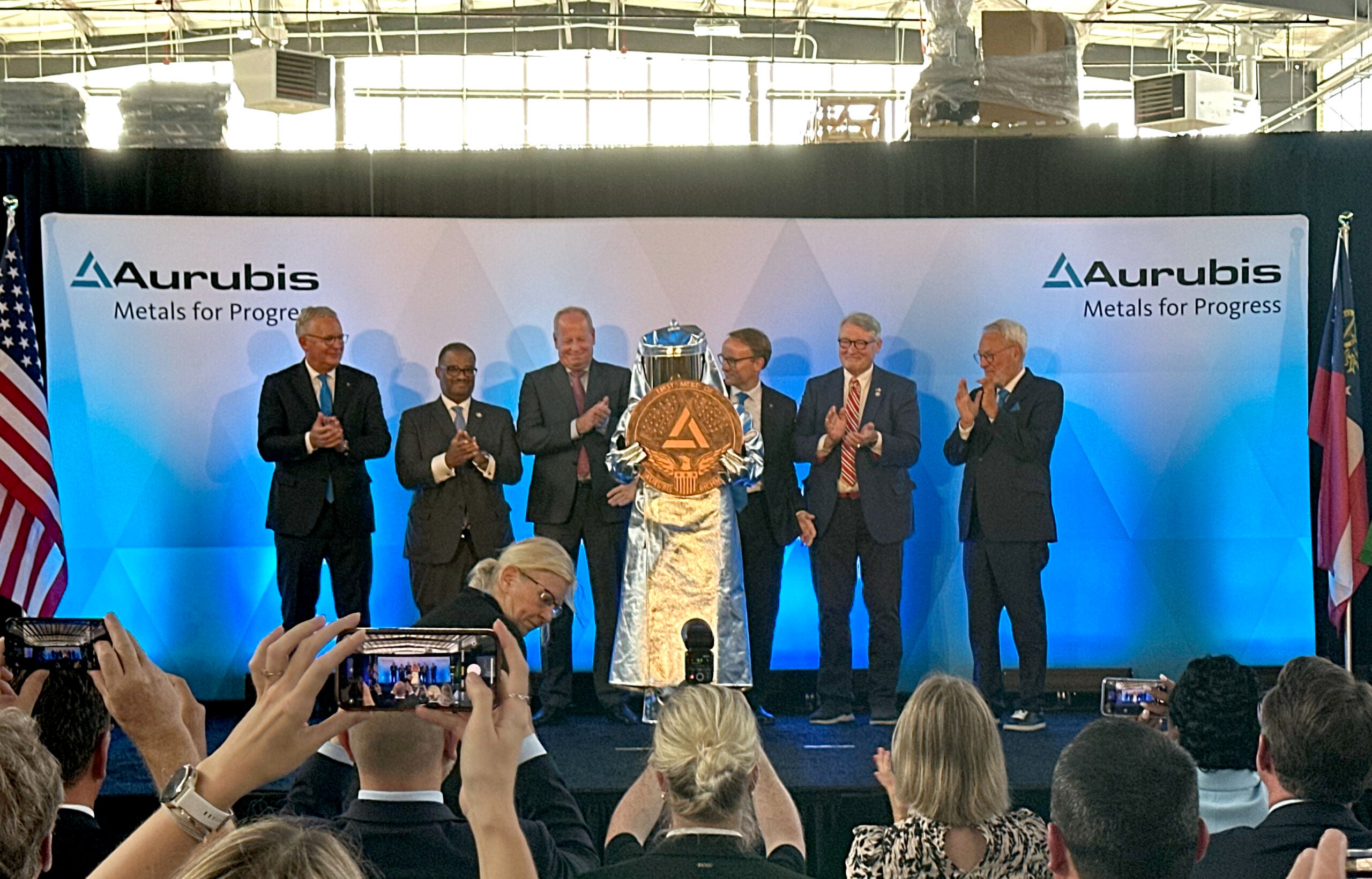Aurubis Richmond poured its first melt this week, marking the launch of full-scale operations at the company’s $850 million Augusta facility. Leaders said the milestone positions the plant to chip away at America’s chronic copper shortage while supplying other critical metals.
“The U.S. currently imports about 1 million tons of copper each year,” said David Schultheis, Aurubis president and managing director, at a morning ceremony attended by company, local and state officials. “This facility expects to fill about 10% of that gap.”
Aurubis Richmond now employs more than 200 workers and expects to reach 240 by mid-2026, he said. Construction still draws about 500 people to the site daily, in addition to jobs tied to suppliers and contractors. The company has logged 2 million man-hours, installed 3,500 metric tons of steel, and laid 25 miles of pipe to get the plant operational.

Phase 2, approved in late 2022, will double intake capacity to more than 180,000 tons of recycling material. Its first melt is set for February 2026 and will add the “metallurgical part” — the furnaces.
Aurubis’ multi-metal production includes copper, nickel, tin and zinc, all vital to data centers, electrification, energy production, and electric vehicles, the megatrends that define civilization today, he said. Employee Kristian Hughes of Beech Island said she was pleased with the mission, of “copper and all types of different metals being here at a better rate.”
Aurubis CEO Toralf Haag called the plant “an industrial powerhouse” producing “metals that people need.” He added: “The U.S. can now reassert ownership of these essential metals.” Metals like copper, nickel and tin but also precious metals, are the backbone of advanced manufacturing. “Without them, we are out of global competition, out of security, out of the game,” Haag said.
Aurubis advisory board Chairman Prof. Dr. Fritz Vahrenholt said the company once considered expanding into China but decided against it. “Our interests and Chinese interests do not match,” he said. “The USA is a perfect country for us.”
America’s advantages include secure, competitively priced energy and fewer bureaucratic hurdles, he said. That’s in contrast to Germany, which “punishes us with high CO2 taxes” and made the “serious mistake of phasing out nuclear energy.”

Vahrenholt said the company was “delighted” with President Trump’s plans to quadruple U.S. nuclear capacity by 2050 and his opposition to carbon dioxide taxes.
Congressman Rick Allen praised the project and said the president would too. “This is right up my alley. I love commerce,” he said. “There’s somebody else that loves it — that’s our president, Donald Trump.” He added that the U.S. economic war with China cannot be won “unless the U.S. matches and beats China in the race to energy.”
Georgia Gov. Brian Kemp sent a video message thanking Aurubis and local officials for welcoming the project. “Keep up the good work,” he said.
German Ambassador to the U.S. Jens Hanefeld noted Aurubis Richmond complements the nation’s two existing copper smelters, compared with China’s 65. His trip to Augusta was his first outside Washington, D.C., since his appointment.
“We are delighted to be part of creating this joint resilience that we also see as an investment in our common security partnership,” Hanefeld said.










